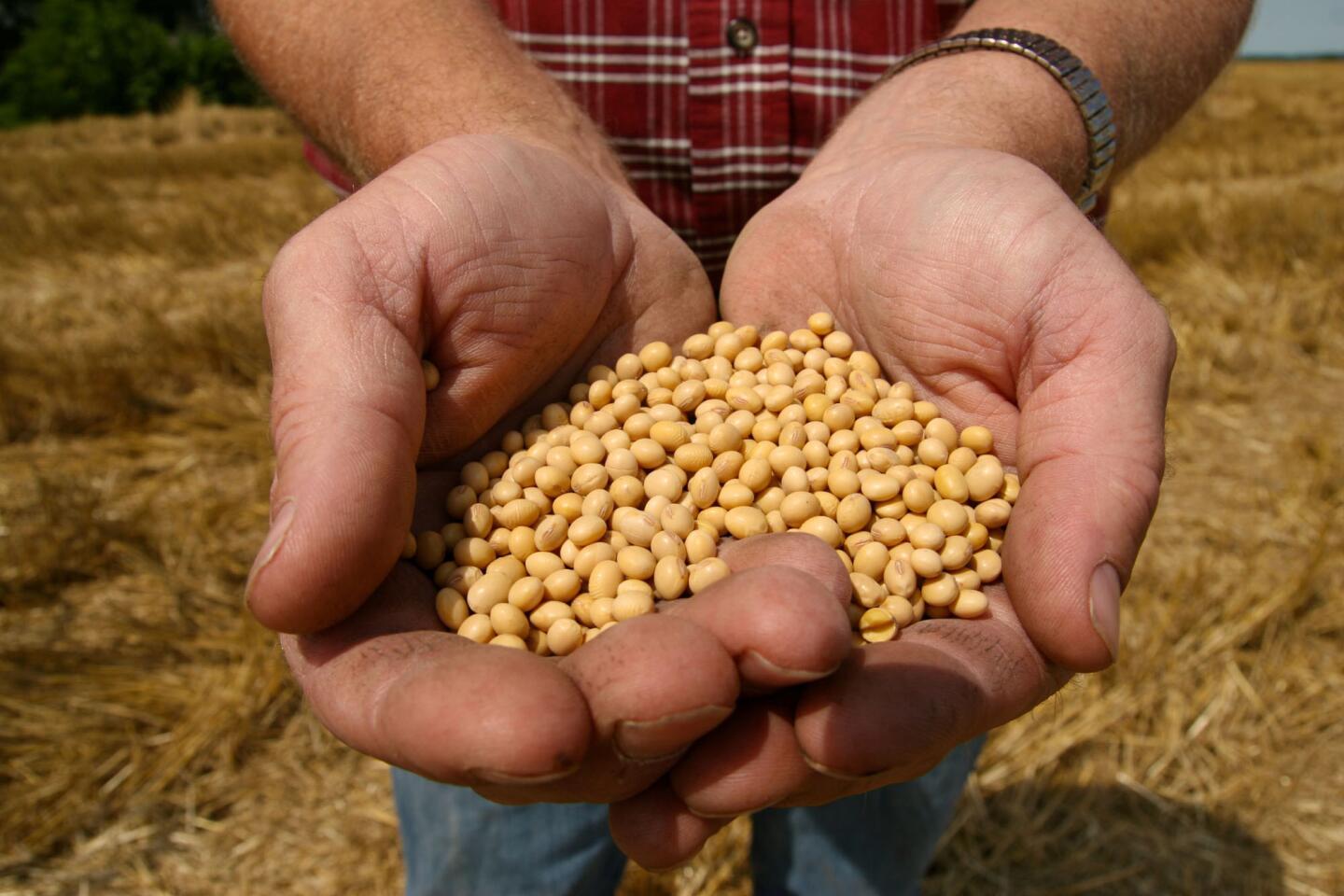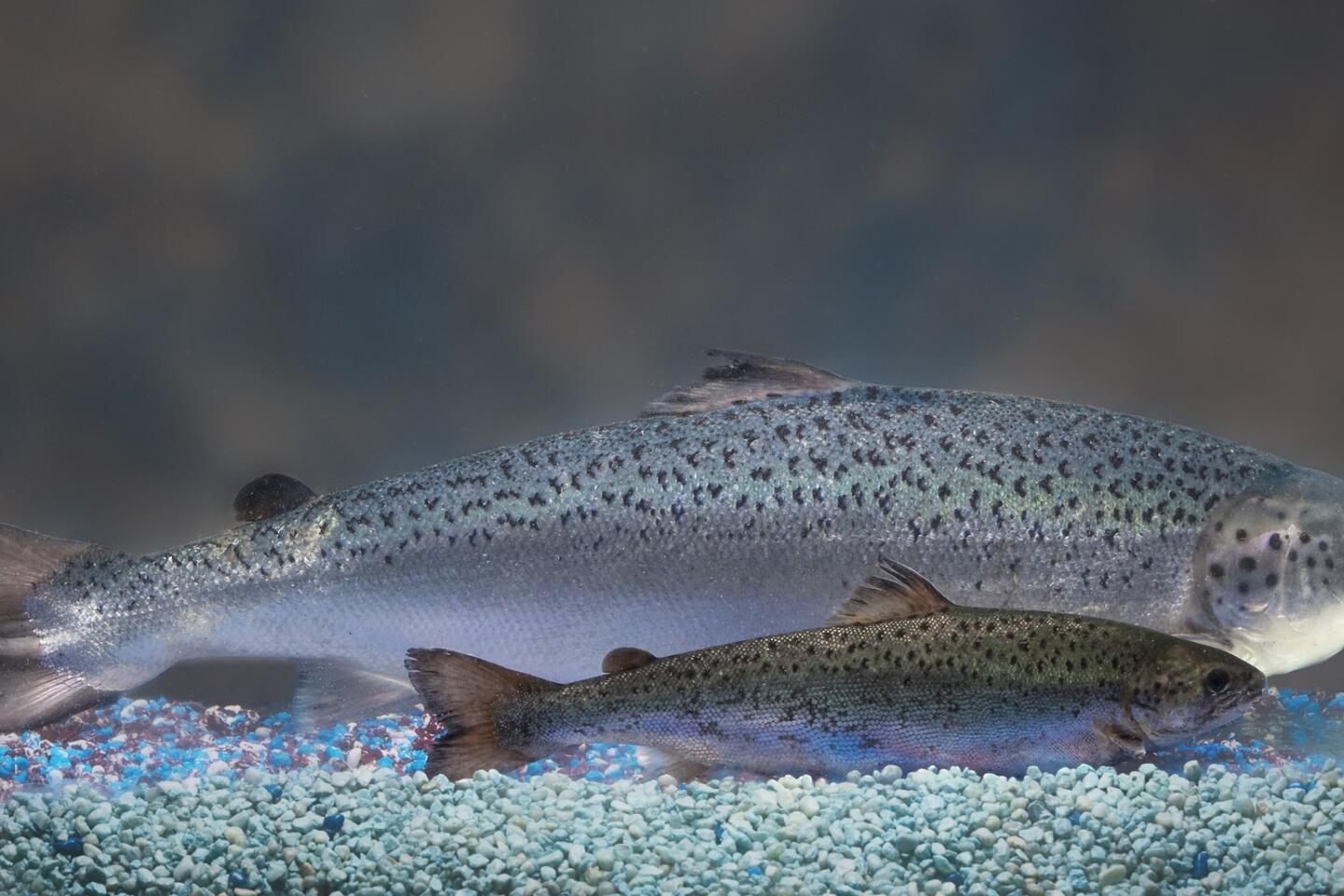No on Proposition 37
There’s a growing gap between what grocery shoppers think they know about their food and the reality. Those tomatoes with the evenly rich red color that look ripened to perfection? They were bred to avoid showing streaks of green, a result of genetic prodding that also stole away most of their flavor. Unless the carton says otherwise, the eggs didn’t come from chickens that scratched around in barnyards but rather spent their lives in cramped battery cages that offered no room to move around. There’s a good chance the meat came from animals that were given antibiotics from their youngest days, both to promote growth and to prevent disease from sweeping through their crowded pens. Pesticides were almost certainly used on the fruits and vegetables. And the sweetener in the soda, or the golden corn on the cob, probably was a product of genetic engineering.
In most cases, there is no requirement to inform consumers, via labels, about the use of pesticides, hormones or antibiotics, or about the inhumane conditions in which animals are often kept. But Proposition 37 would make an exception for genetically engineered food, requiring that it be labeled before being sold in California. Although we generally endorse people’s right to know what goes into their food, this initiative is problematic on a number of levels and should be rejected.
Genetic engineering — tinkering with genes in a laboratory to produce desirable qualities — has dominated the production of certain crops for years. Today, somewhere between 85% and 95% of the corn and soybeans grown in this country, for example, have altered genes. Often, the alteration renders the crops “Roundup ready,” which means they’re able to withstand the herbicide glyphosate, marketed by Monsanto under the trade name Roundup. That allows farms to spray against weeds without killing the food plants. And because corn and soy appear in so many products — in the form of high-fructose corn syrup, as just one example — genetically engineered ingredients are common in processed foods.
ENDORSEMENTS: The Times’ recommendations for Nov. 6
Unfortunately, the initiative to require labeling of those ingredients is sloppily written. It contains language that, according to the nonpartisan Legislative Analyst’s Office, could be construed by the courts to imply that processed foods could not be labeled as “natural” even if they weren’t genetically engineered. Most of the burden for ensuring that foods are properly labeled would fall not on producers but on retailers, which would have to get written statements from their suppliers verifying that there were no bioengineered ingredients — a paperwork mandate that could make it hard for mom-and-pop groceries to stay in business. Enforcement would largely occur through lawsuits brought by members of the public who suspect grocers of selling unlabeled food, a messy and potentially expensive way to bring about compliance.
These are all valid arguments for rejecting Proposition 37, but a more important reason is that there is no rationale for singling out genetic engineering, of all the agricultural practices listed above, as the only one for which labeling should be required. So far, there is little if any evidence that changing a plant’s or animal’s genes through bioengineering, rather than through selective breeding, is dangerous to the people who consume it. In fact, some foods have been engineered specifically to remove allergens from the original version. By contrast, there is obvious reason to be worried about the fact that three-fourths of the antibiotics in this country are used to fatten and prevent disease in livestock, not to treat disease in people. The rise of antibiotic-resistant bacteria from overuse of pharmaceuticals poses a real threat to public health. So why label only the bioengineered foods? Because the group that wrote Proposition 37 happened to target them. What’s needed is a consistent, rational food policy, not a piecemeal approach based on individual groups’ pet concerns.
That’s not to belittle consumer doubts about genetically engineered foods. The nation rushed headlong into producing them with lax federal oversight, and although many studies have been conducted over the last couple of decades, a 2009 editorial in Scientific American complained that too much of the research has been controlled by the companies that create the engineered products. The solution, though, is more independent study and, if necessary, stronger federal oversight and legislation, not a label that would almost certainly raise alarm about products that haven’t been shown to cause harm.
PHOTOS: Seven foods, genetically engineered
The more substantiated issue with genetically engineered foods is their effect on the environment and possibly on other crops. The over-reliance they’ve encouraged on a single herbicide has contributed to the emergence of Roundup-resistant weeds. The industry is now seeking federal permission to grow corn that can withstand a different, more problematic herbicide. The Obama administration should withhold permission until agribusiness comes up with a better long-term solution than creating ever-tougher weeds.
Meanwhile, the marketplace already provides ways to inform consumers about their food. Just as some meats are labeled antibiotic-free or hormone-free, and some eggs are labeled cage-free, food producers are welcome to label their foods as GE-free. The Trader Joe’s grocery chain has helped market itself to concerned consumers by announcing that its private-label foods do not contain genetically engineered ingredients. Organic foods are never genetically engineered. There are no genetically engineered versions of most fruits sold in markets.
Savvy producers of other products are starting to get the message: The label on at least one brand of cornstarch prominently announces that it is made from “non-genetically modified corn.” And, of course, there’s an app for shopping GE-free. If consumers make it clear to the food industry that they don’t want genetically engineered food, the market will respond — but with higher prices as well as less high-tech products.
More to Read
A cure for the common opinion
Get thought-provoking perspectives with our weekly newsletter.
You may occasionally receive promotional content from the Los Angeles Times.








